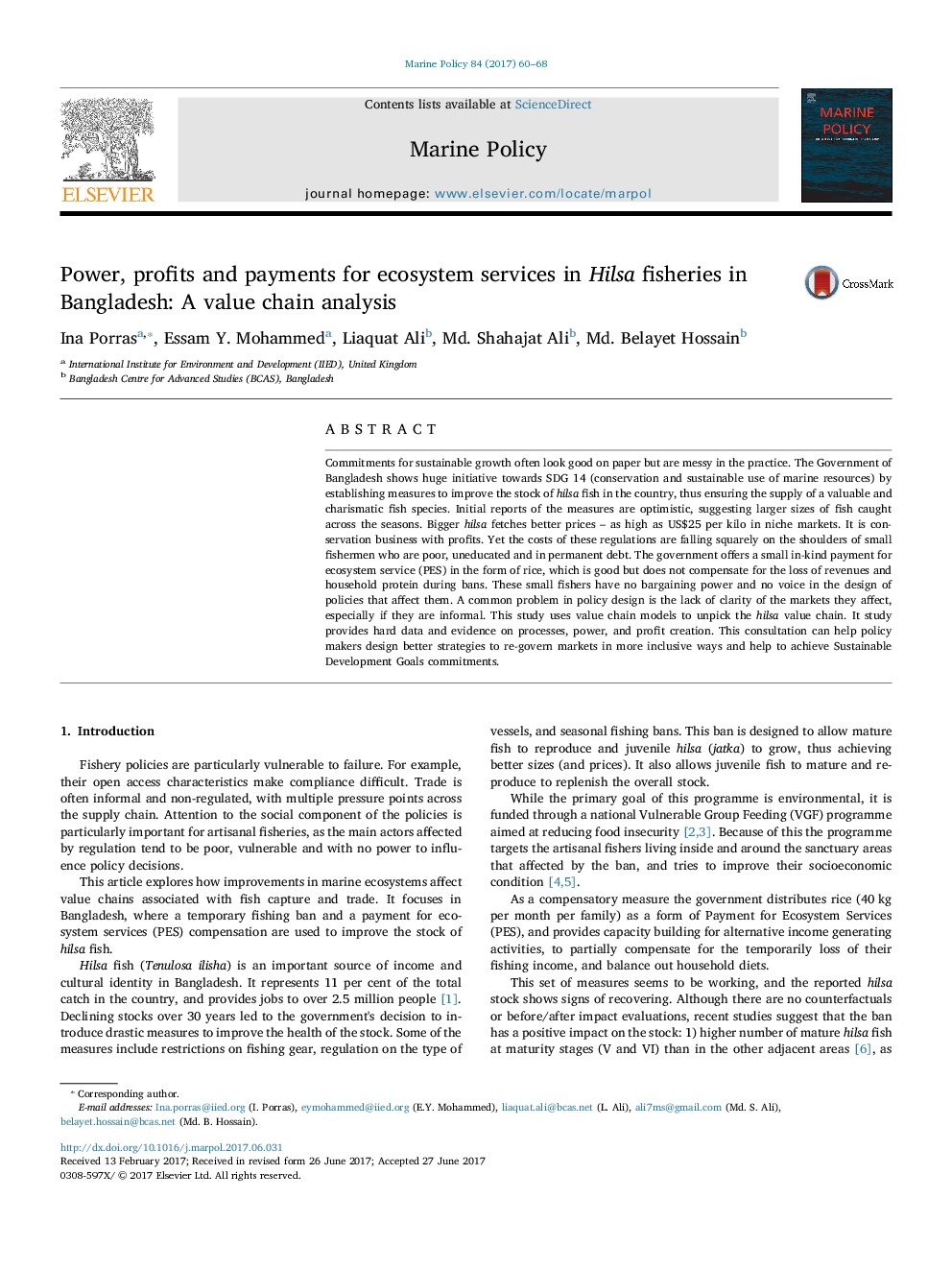ترجمه فارسی عنوان مقاله
قدرت، سود و پرداخت برای خدمات اکوسیستمی در شیلات هیلسا در بنگلادش: تجزیه و تحلیل زنجیره ارزش
عنوان انگلیسی
Power, profits and payments for ecosystem services in Hilsa fisheries in Bangladesh: A value chain analysis
| کد مقاله | سال انتشار | تعداد صفحات مقاله انگلیسی |
|---|---|---|
| 101332 | 2017 | 9 صفحه PDF |
منبع

Publisher : Elsevier - Science Direct (الزویر - ساینس دایرکت)
Journal : Marine Policy, Volume 84, October 2017, Pages 60-68

